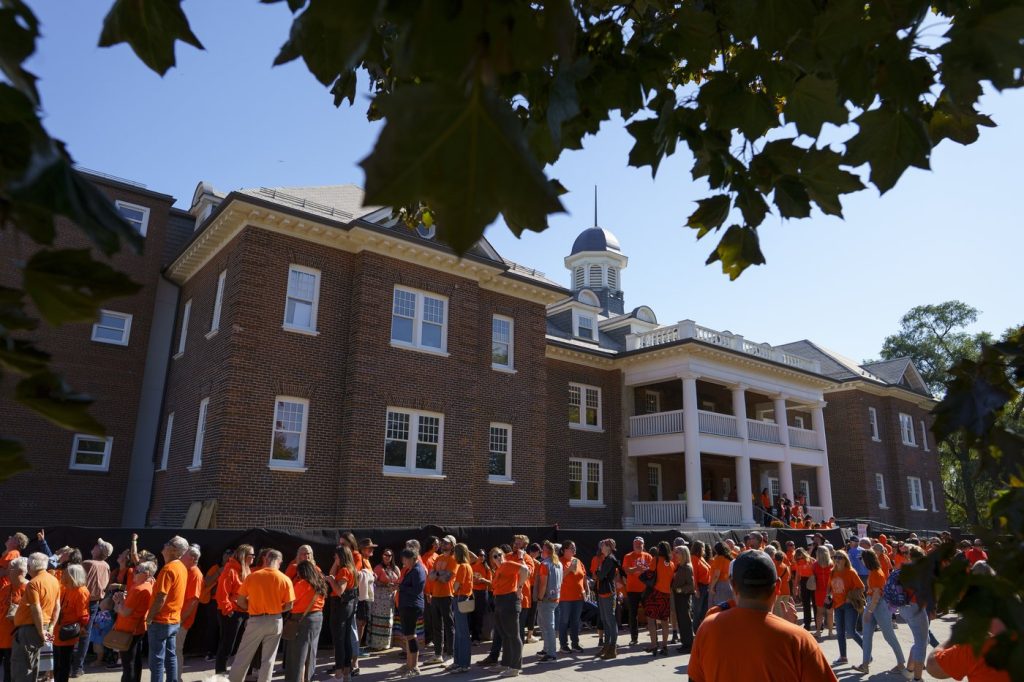As Indigenous Peoples in Canada marked the National Day for Truth and Reconciliation on September 30, they faced the ongoing challenge of public figures who claim the history of residential schools is exaggerated or fabricated. This sentiment poses significant obstacles to reconciliation efforts nationwide.
The Truth and Reconciliation Commission, established through a legal settlement involving the federal government and survivors of residential schools, determined that the primary objective of these institutions was to erase Indigenous cultures. Between 1857 and 1996, approximately 150,000 Indigenous children were forced to attend government-funded, church-run schools, where they were prohibited from speaking their languages. Many of these schools were characterized by widespread abuse and were often located far from families and communities, resulting in an estimated 6,000 child deaths; however, experts believe the actual number could be much higher as they continue to analyze extensive records.
The federal government designated September 30 as the National Day for Truth and Reconciliation in 2021, following the Tk'emlúps te Secwépemc First Nation's initial findings involving potential unmarked graves discovered through ground-penetrating radar at a former residential school in Kamloops, British Columbia.
In the weeks leading up to this year's observance, several prominent individuals and political figures released statements that downplayed or denied the historical accounts of residential schools. Former British Columbia Conservative MLA Dallas Brodie, expelled from his party earlier for ridiculing testimonials from former residential school survivors, shared a trailer for a video titled "Making a Killing: Reconciliation, Genocide and Plunder in Canada." Additionally, a Conservative Party of British Columbia staff member was terminated after referring to the Survivors' flag, meant to honor residential school survivors, as a "disgrace" that perpetuates "untruths." Moreover, Maxime Bernier, leader of the People's Party of Canada, claimed on social media that "no bodies were found" and dismissed the notion of residential school "genocide" as a hoax.
In response, Indigenous Services Minister Mandy Gull-Masty condemned Bernier's comments, highlighting their lack of humility and respect. The Assembly of First Nations also referred his statements to the RCMP as potential hate speech, asserting that First Nations have faced discrimination since the founding of Canada.
Historian Sean Carleton described residential school denialism as a tactic that distorts the established facts to undermine public trust in the experiences of survivors and the broader reconciliation process. He stressed the importance of acknowledging the truth of these histories rather than allowing doubt to be sown inappropriately.
In the previous Parliament, NDP MLA Leah Gazan introduced a private member's bill aimed at criminalizing the denial of residential schools, but the bill lapsed as the election was called. This legislation proposed that anyone publicly promoting hatred against Indigenous Peoples by downplaying or denying the impact of the residential schools could face penalties of up to two years in jail. Similar measures have been enacted in Canada to combat Holocaust denialism.
Gazan has expressed ongoing commitment to advancing this legislation, emphasizing the need to protect survivors, who are increasingly subjected to harmful narratives claiming their suffering is not real. She noted that the Truth and Reconciliation Commission was documenting unmarked graves long before the discussions heightened in 2021, with reports from Kimberly Murray, the former special interlocutor on this issue, released last year.
Marc Miller, the former minister of Crown-Indigenous relations, acknowledged that 2021 marked a watershed moment for the awareness of the residential school history among non-Indigenous Canadians, who may not have understood the full extent of the atrocities. He pointed out that some individuals have focused on inconsistencies in reports to claim that no harm occurred in these institutions, stating that atrocities did happen and need to be recognized.
Miller recounted the harrowing testimonies from survivors, illustrating the brutal realities they faced in these schools. He shared instances where survivors asked him to sit on a particular side due to past abuse, underscoring the personal and painful nature of these histories, and emphasized the gravity of denying such experiences.










